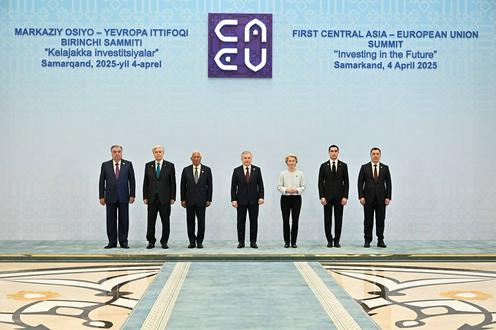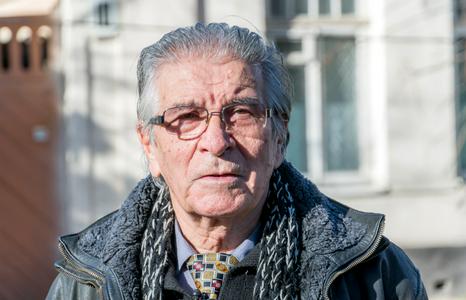A shared commitment to peace, security, democracy, and the fundamental principles of international law is driving a deepening of cooperation between the European Union and Central Asia, according to the joint press release issued at the conclusion of the Central Asia–EU Summit held on April 4 in Samarkand. The full document has been published on the European Council’s website.
Amid an uptick in bilateral engagement and a rapidly evolving regional agenda, leaders from both regions agreed to elevate their relationship by establishing a formal strategic partnership.
“Central Asia and the European Union are long-standing partners, and the need for close cooperation between them is growing steadily,” said Uzbekistan’s President Shavkat Mirziyoyev. “I firmly believe that our strategic partnership must be filled with concrete solutions, projects, and programs. I would especially like to underscore the importance of implementing mechanisms that bring our initiatives and agreements into practical effect.”
European Council President António Costa echoed this sentiment, saying the time had come to take the EU’s partnership with Central Asia to the next level—by deepening trade, strengthening regional cooperation, and fostering people-to-people ties.
“The EU remains a reliable and forward-looking partner for Central Asia, investing in its long-term sustainable development for mutual and lasting benefit,” Costa stated. “Consistency, predictability, and ambition will continue to guide our shared efforts.”
European Commission President Ursula von der Leyen also emphasized the importance of EU–Central Asia relations. “In a world marked by instability, we are sending a clear signal: we are partners by choice, and we can count on one another,” she said.
“To launch a new era, we are rolling out a €12 billion Global Gateway investment package—aimed at strengthening our transport links and deepening cooperation in critical raw materials, digital connectivity, water, and energy,” von der Leyen added.
The joint press release highlights progress on the Trans-Caspian International Transport Corridor, which connects Central Asia with Europe. To support infrastructure and logistics along the route, €10 million in investments have been pledged.
EU leaders also voiced their support for Uzbekistan and Turkmenistan’s aspirations to join the World Trade Organization. Additionally, they welcomed the growing influence of the European Bank for Reconstruction and Development and the European Investment Bank in key areas such as energy, water resource management, communications, transportation, and critical materials.
The summit concluded with the adoption of a 20-point Joint Declaration, formalizing the intent to develop a strategic partnership between the Central Asian countries and the European Union. The declaration outlines a range of concrete initiatives and collaborative projects aimed at reinforcing regional integration and mutual prosperity.










